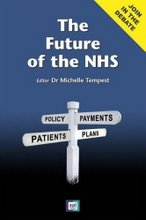 Liberty, freedom, equality and democracy - today we hear those words so often we cannot image a time when they were a new and challenging idea, which shook civilisation to its foundations. It was Jean Rousseau who was an influential founder of this concept and gave it both shape and power.
Liberty, freedom, equality and democracy - today we hear those words so often we cannot image a time when they were a new and challenging idea, which shook civilisation to its foundations. It was Jean Rousseau who was an influential founder of this concept and gave it both shape and power.Rousseau was the son of a watchmaker in Geneva, Switzerland. His mother died nine days after his birth due to complications from childbirth; his father, a watchmaker, abandoned him to avoid imprisonment for fighting a duel. During his childhood, Rousseau often read in the tranquility of a garden, which he would later describe as the most serene part of growing up.
Rousseau saw a fundamental divide between society and human nature, and contended that humankind was good by nature, but corrupted by society. Perhaps his most influential work was 'The Social Contract'. It gave the world ideas about the natural rights of everyman, and analysed the whole question of government including who should benefit from it. His answer was the common man. Some claim that his influences instigated the French Revolution.
His writings made startling changes as he put his beliefs about liberty, equality, and democracy into words. As a result he was heard like a trumpet call, and people all round the world rallied to this brave new standard.
Quotations from Rousseau:
“Liberty, Equality and Fraternity.”
“It is the common people who make up the human race. What is not the common people is hardly worth considering.”
His writings made startling changes as he put his beliefs about liberty, equality, and democracy into words. As a result he was heard like a trumpet call, and people all round the world rallied to this brave new standard.
Quotations from Rousseau:
“Liberty, Equality and Fraternity.”
“It is the common people who make up the human race. What is not the common people is hardly worth considering.”



